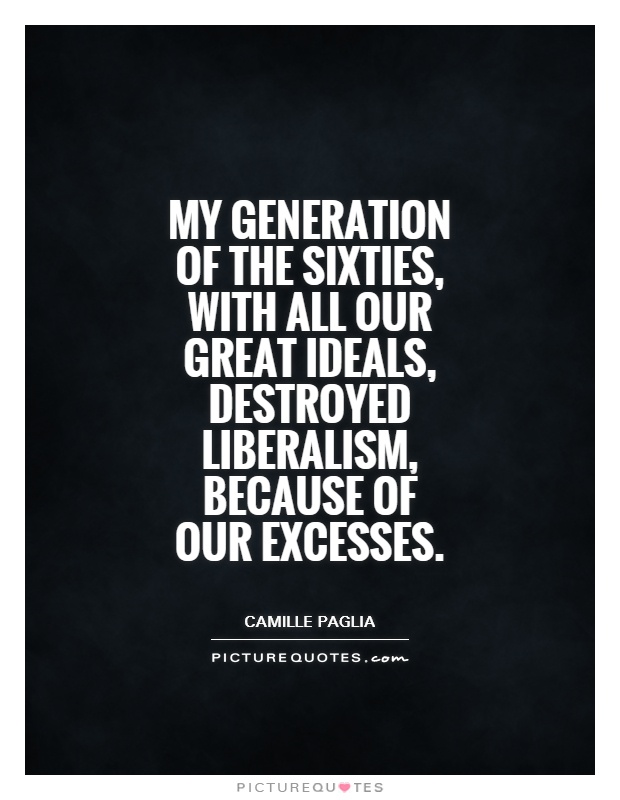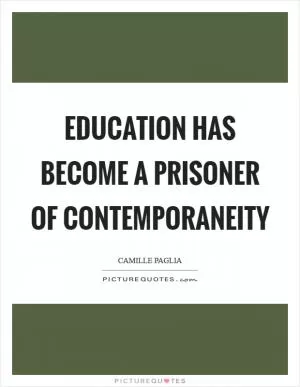My generation of the Sixties, with all our great ideals, destroyed liberalism, because of our excesses

My generation of the Sixties, with all our great ideals, destroyed liberalism, because of our excesses
Camille Paglia, a prominent cultural critic and feminist scholar, has often been critical of the excesses of the Sixties generation and their impact on liberalism. In her work, Paglia argues that the idealism and activism of the Sixties ultimately led to the downfall of liberalism, as the movement became increasingly radical and intolerant of dissenting viewpoints.Paglia points to the rise of political correctness and identity politics as examples of how the Sixties generation's ideals were taken to extremes, stifling free speech and open debate. She argues that the Sixties generation, in their quest for social justice and equality, became dogmatic and intolerant of any views that did not align with their own. This, in turn, alienated many moderate liberals and pushed them towards more conservative ideologies.
Paglia also criticizes the Sixties generation for their rejection of traditional values and institutions, such as the family and religion. She argues that this rejection led to a breakdown of social cohesion and a loss of moral authority, which ultimately weakened liberalism as a political force.
Furthermore, Paglia believes that the excesses of the Sixties generation have had a lasting impact on American culture and politics. She argues that the rise of identity politics and the focus on individual rights over collective responsibility have eroded the sense of community and solidarity that is necessary for a functioning liberal society.












 Friendship Quotes
Friendship Quotes Love Quotes
Love Quotes Life Quotes
Life Quotes Funny Quotes
Funny Quotes Motivational Quotes
Motivational Quotes Inspirational Quotes
Inspirational Quotes